The arrowheads below are artifacts that have been collected over the years by
myself and my grandfather, Joe D. Kinard. Most of the pieces were
collected along streambeds, from areas just cleared for construction, or
freshly-plowed, open fields just after a rainfall. Several of the
arrowheads are very worn with age, or are pieces fragmented from larger points.
A quarter or tape measure is included in the photographs, to lend a sense of scale to the
specimens.
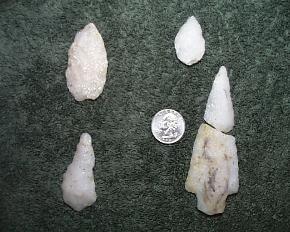 The large, broken point
here is a
fine specimen. It was most likely used on the end of a spear of some
kind, either a ceremonial piece or a hunters tool. The large, broken point
here is a
fine specimen. It was most likely used on the end of a spear of some
kind, either a ceremonial piece or a hunters tool.
|
These assorted points are
quite worn.
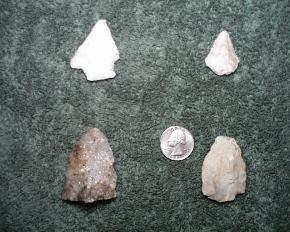 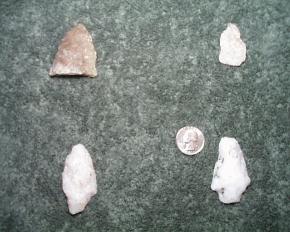
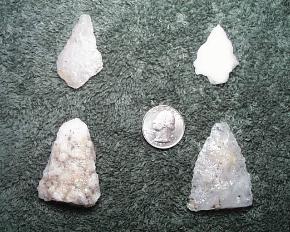 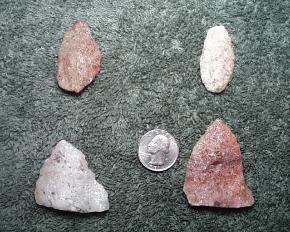 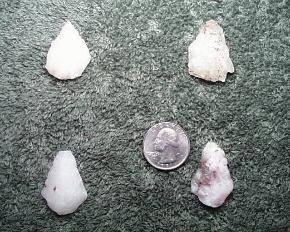
|
|
The red piece below is fashioned of Rose
Quartz. It is a very nearly perfect, unbroken shape, and is one of my
favorite pieces.
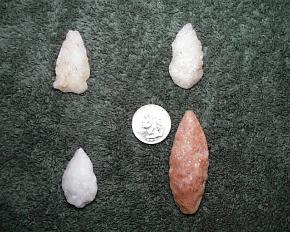
|
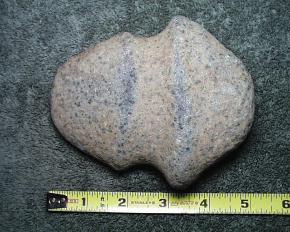 This is a
large, nearly perfect example of a stone tool. It was most
likely used as the head of a ceremonial axe. It is about five inches
long, and was found underwater, in the shallow bed of a small, cold
mountain stream. This is a
large, nearly perfect example of a stone tool. It was most
likely used as the head of a ceremonial axe. It is about five inches
long, and was found underwater, in the shallow bed of a small, cold
mountain stream.
|
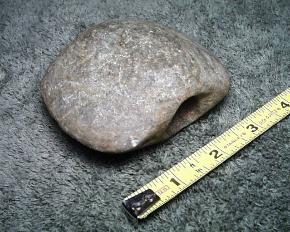 This piece was originally
discovered by the noted author Archibald Rutledge, and given to my
grandfather as a gift. It is called a "banner stone", and was used in ceremonial
Indian worship. The piece is nearly perfect, with no flaws. It
is about 4 inches long. This piece was originally
discovered by the noted author Archibald Rutledge, and given to my
grandfather as a gift. It is called a "banner stone", and was used in ceremonial
Indian worship. The piece is nearly perfect, with no flaws. It
is about 4 inches long. |
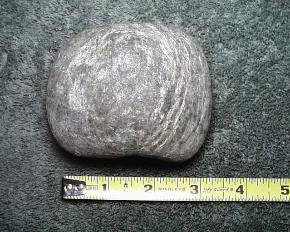 |
The hole in this banner stone was made by twisting a hardened
object round and round many times. There is a little nipple left at the
bottom of the hole, where the twisted object had a cavity on its end.
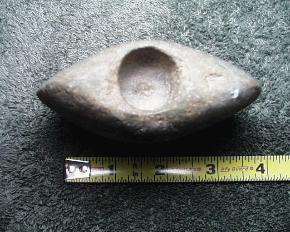 |
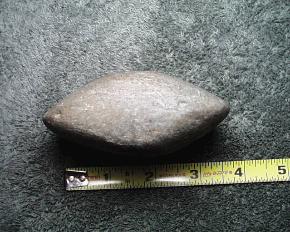 |
|
This is my finest example of
a fluted point. It is known as a "bird-point". This
arrowhead was made of flint, and was used on light arrows to hunt various
birds. Note the size of this point next to the quarter.
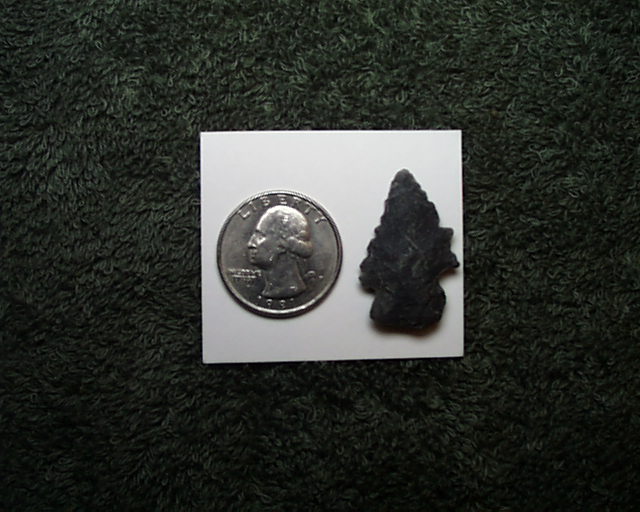 |
|